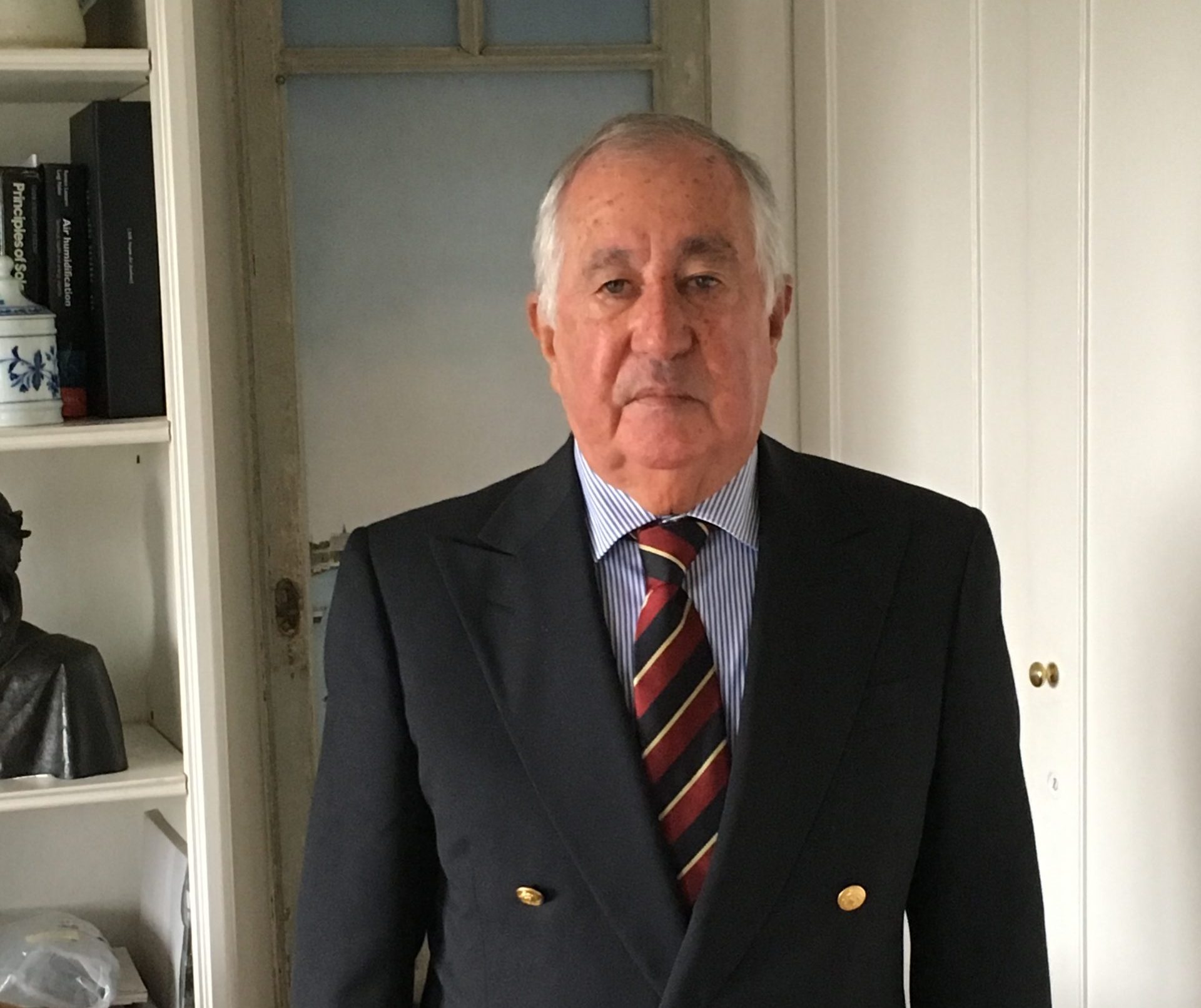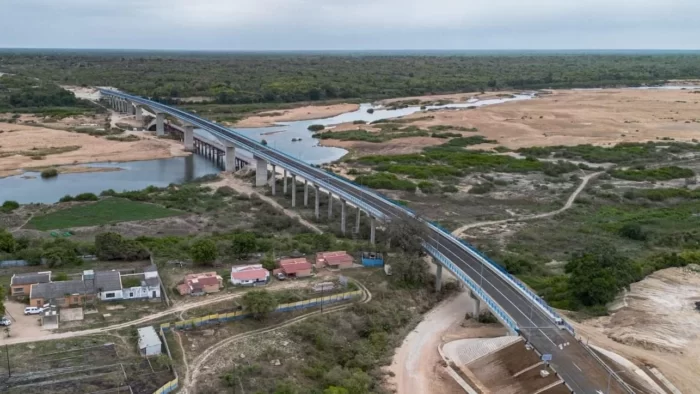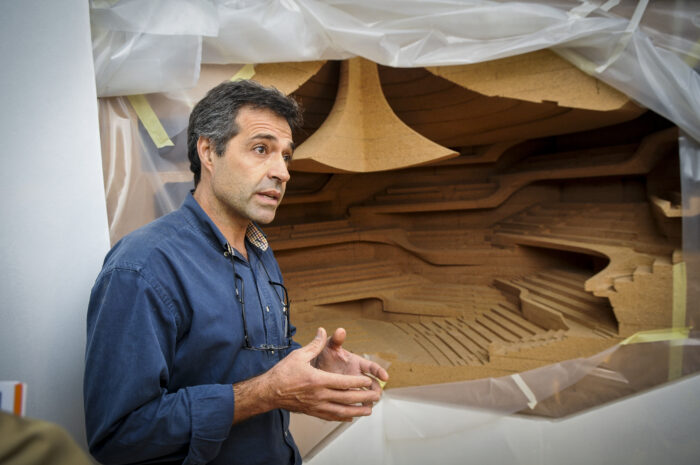A conversation with Eng. José Galvão Teles

A conversation with Eng. José Galvão Teles
'It's not enough to have comfort, you have to use little energy, you have to have things that are effective and simple to maintain, and that age slowly, and these concerns are often used as a false flag'
To get to know you better, tell us about the start of your career.
I studied at Técnico, graduated in Mechanical Engineering, did my Masters in London and then returned for military service. In 1971 I joined Efacec as an engineer and started working mainly in the industrial sector. The director, Mr. Botelho de Sousa, thought that energy problems and pollution were already important issues and so we did a lot of projects and work, such as at Siderurgia Nacional, in terms of air treatment, filtration and the environment. With the appearance of Pão de Açúcar, we did a lot of work related to ventilation and air conditioning, which was more about comfort. After April 25th, I decided to start working for myself. Through the company Aeroprojecto, which I still own, I teamed up with Prof. António Janeiro Borges – who was the director of the Aerodynamics Laboratory – on consultancy work, essentially on wind engineering and pollution programs. We did a study on the protection of the coal park at the Sines Thermal Power Station and another wind-related study on the cables of the Guadiana Bridge. In the meantime, my colleague Janeiro Borges devoted himself more to teaching and we parted company. I stayed with Aeroprojecto, with my son Miguel, and created another company in parallel, José Galvão Teles Engenheiros Lda.
And how did your career develop?
I started working on a series of refurbishments of military buildings and, by pure chance, I met a former high school classmate, Fernando Caetano Gonçalves, who was starting up Joule. He was working with architect Teotónio Pereira on the EPUL buildings and needed someone to help him with ventilation, so he invited me. That’s when I started to become more active in air conditioning. In the meantime, Caetano Gonçalves introduced me to Gonçalo Byrne and he asked me to take part in a competition for Marconi. Since then, I’ve mainly worked as part of teams of architects. In the meantime, a very interesting job came up for ITQB, the first major biotechnology laboratory in Portugal. This project gave us a very important foundation. After that, we did several laboratories. At this stage, our specialties team began to be very constant, we created a very strong professional connection with Joule, in the electricity sector, and with Grade Ribeiro, in the water sector. Later there was the tender for the CCB, which was also a reference. With BETAR, I’ve been working especially with José Pedro Venâncio, and even more with Miguel Villar, who is a fantastic person, a humanist, who simplifies things a lot, and besides knowing a lot, has a brutal intuition. In air conditioning, we really need a strong connection with the structures. It’s a work of complementarity between specialties. We did the old Dr. Câmara Pestana Institute with architect Byrne and BETAR, which was very interesting. In the hotel sector, I’m thinking of the Pousada de Estoi, also by Gonçalo and BETAR, which took advantage of efficiency.
You work in a difficult area of engineering, which is constantly evolving. How do you distinguish “ecological fashion” from what is truly innovative and important for the customer?
I always quote the inventor James Watt – I don’t know if this is the exact phrase – “the supreme excellence is simplicity”, because in fact things must be simple and compatible with nature. There are many optimization components in the field of energy conservation and pollution that are fundamental but come up against major economic problems. Most of the time our clients would like to have everything but can’t afford it, and this happens even in public institutions that should be concerned about this. It’s not enough to have comfort, you must use little energy, you must have things that are effective and simple to maintain, and that age slowly, and these concerns are often used as a false flag, as you said.
What are the biggest challenges?
Deadlines are difficult to meet, there’s a lot of pressure; there’s no protection in terms of fees, the state is the first to subvert this; contractors, especially in our specialty, often try to change certain things in projects for economic reasons, which usually correspond to a reduction in quality; legislation… I lived in England for almost two years and the Anglo-Saxon pragmatism is incomparable to what happens in Portugal. We can’t make simple laws, everything has various interpretations, the rules are constantly changing and the “complication meter” is always on. You never know what you’re counting on. There is very little stability and clarity. Of course, there is one important point: there has been a great improvement in the quality of construction due to various impositions. What’s being done now can’t be compared to the building stock we inherited several years ago.
I’d like to take this opportunity to say that Artes&Letras is a very interesting publication and was an extremely pleasant idea. BETAR, with Eng. Mendonça, whom I also had the privilege of meeting, is concerned with civic intervention, which is very interesting. Doing it just to make money isn’t enough.
This interview is part of Artes & Letras Magazine #151, April 2023.
Partially automatic translation from portuguese: some expressions may differ from their actual meaning.
News & Interviews
New bridge inaugurated in Mozambique
Betar has contributed to the success of the project, which is vital for the transportation of people and goods. Read more
A conversation with Arch. Bernardo Pimentel
‘This studio works as a futurology of what is happening around the world. Models are still necessary for the projects and we like to be treated as artisans.’ Read more
A conversation with Arqº Francisco Pinto Basto e Filipa George
"The projects are all done together, right from the concept, where we really value optionality. (...) A project doesn't have one solution, it has several. We advise the option we prefer, but we always offer others" Read more




